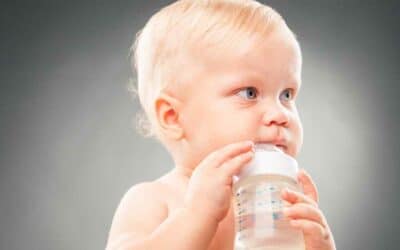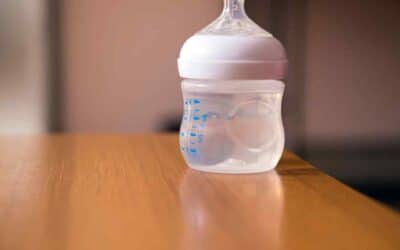Breastfeeding is one of nature’s most profound processes, providing infants with the optimal nutrition they require for growth and development. Mothers, while playing this significant role, often focus intently on their child’s needs, sometimes sidelining their own well-being. One such aspect that is pivotal yet frequently overlooked is maternal hydration.
Just as nature designed breast milk to quench a baby’s thirst and satiate their hunger, mothers, too, need to replenish their bodies with ample fluids. This article delves into the intertwined relationship between breastfeeding and hydration, elucidating the physiological needs, potential pitfalls, and proactive measures mothers can adopt. So, as you nourish your little one, let’s ensure you’re also adequately nourished and hydrated for this remarkable journey ahead.
The Physiology of Breast Milk Production
Breastfeeding, a natural and vital process, provides an intricate cocktail of essential nutrients, water, and immunity factors through breast milk, ensuring the optimal growth and development of a baby. Understanding the intricate physiology of milk production can guide breastfeeding mothers towards maintaining a healthy milk supply.
How the Body Produces Milk
Breast milk production is a delicate dance of hormones, blood flow, and hydration. The mammary glands use blood to create milk, with blood flow being crucial for a healthy milk supply. A noteworthy point many women might not realize is that staying hydrated can support the milk-making process. A glass of water may not directly lead to a glass of milk, but overall fluid intake, including drinking water throughout the day, plays a significant role in ensuring the consistency and volume of breast milk.
Components of Breast Milk
Breast milk is a wonder elixir. It contains water, essential nutrients, and immunity-boosting factors. Drinking enough water aids in maintaining the water content in the milk, while a balanced diet ensures the milk is rich in other nutrients. Drinking excess water, on the other hand, doesn’t necessarily boost milk supply. Instead, maintaining a consistent water intake, while also consuming water-rich foods like oranges, can be beneficial.
Importance of Water in Milk Production
Water constitutes a significant part of breast milk. Given that milk is the only source of hydration for many infants in the first few weeks, breastfeeding moms should pay heed to their fluid intake. The adage, “Drink a glass of water every time you breastfeed,” is grounded in practicality. A water bottle can be a breastfeeding mom’s best companion, ensuring she stays hydrated even when slightly dehydrated and misses thirst cues. Plain water, caffeine-free fruit juices, and sugar-free drinks are ideal. Quick tips include avoiding alcohol, as drinks like beer can affect hydration levels, and limiting caffeine sources like coffee, which can lead to dehydration.
Hydration Needs of Breastfeeding Mothers
Breastfeeding is a beautiful journey shared between a mother and her baby, a process that requires a dance of hormones, dedication, and certain dietary adjustments. One such critical adjustment revolves around hydration.
Increased Fluid Requirements for Lactating Women
The body’s fluid needs naturally increase during lactation. As a mother, you’re not just drinking water for your hydration but also to support the production of breast milk. It’s estimated that mothers should aim for around 128 ounces or more, based on individual body weight and needs, to ensure they stay hydrated and can produce enough milk. This doesn’t mean you have to solely drink water; other fluids, including those from foods with high water content, count towards this goal. So, whether you opt to drink milk, have sports drinks occasionally, or indulge in a water-rich fruit, it all adds up!
Signs of Dehydration and Its Impact on Milk Supply
Dehydration can have a significant effect on the letdown reflex, potentially leading to a reduced milk supply. Signs to watch for include dark, concentrated urine instead of a pale yellow hue, feeling constantly thirsty, and fatigue. Remember, staying hydrated is not just about milk production; it also helps maintain the body’s electrolyte balance and flush out waste products.
Factors Affecting Hydration Needs:
Several factors can alter the fluid needs of breastfeeding mothers:
- Climate: Hot and humid conditions may make you sweat more, thus increasing the need to drink more water.
- Activity Level: Active mothers, especially those engaging in postpartum exercises, will need additional fluids to compensate for what’s lost during physical activities.
- Diet: Consuming foods with high salt content can make you feel thirsty more often. On the other hand, including foods with high water content in your diet, like cucumbers or watermelon, can help you stay hydrated.
- Other Drinks: While it’s fine to indulge in energy drinks or caffeinated beverages occasionally, they shouldn’t be the primary source of hydration. They might even necessitate drinking more water to counteract their dehydrating effects.
Conclusion
In the intricate dance of motherhood, breastfeeding stands as a testament to nature’s genius, providing babies with unparalleled nutrition and fostering an unbreakable bond between mother and child. However, as we’ve explored in “Breastfeeding and Hydration: What You Need to Know,” sustaining this miracle isn’t just about the act itself. It’s intrinsically linked to a mother’s hydration levels.
By recognizing the increased fluid requirements, understanding the signs of dehydration, and adapting to various external factors, mothers can ensure an adequate milk supply and overall well-being. As you nourish your baby, remember to nourish yourself as well. After all, a hydrated mother is a powerhouse, capable of providing the best for her child. So, raise a glass of water to your incredible journey, and here’s to the health and happiness of both mother and baby!
Did this article help you? Please comment below and let us know. If you have any questions, please don’t hesitate to ask.



